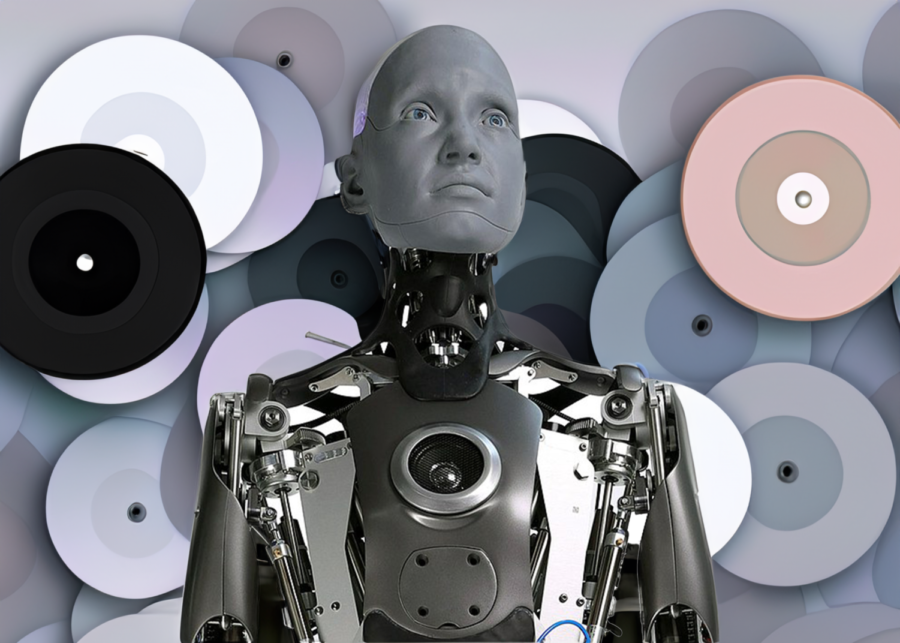At some point during this month, we’ve all heard the AI-generated cover of FIFTY FIFTY’s Cupid, featuring Playboi Carti and Drake. When AI models such as So Vits SVC were made public in late March, many audio engineers and AI enthusiasts flocked to attempt to create covers of their favorite songs with artists, such as Drake.
As these AI covers began to rise in popularity on YouTube, the ethics of the situation were also heavily debated. Some viewers appreciated the time and effort that these creators invested, while others were against the idea of bringing Michael Jackson back from the dead to sing Careless Whisper. Eventually, artists who were being robbed of their voices, such as Drake, voiced their opinion on the issue.
When a content creator by the name of Ghostwriter released a song, “Heart on my Sleeve,” sung by Drake and The Weeknd using AI vocals, it received over 15 million views on YouTube, and presented an eerie possibility of the implications of AI voice cloning. While UMG’s decision to ban the song on all platforms was heavily criticized, it is reasonable, as the release of such songs could cause severe financial tolls on the record label if not dealt with accordingly.
Despite the ban on “Heart on my Sleeve”, many diehard Drake fans have re-uploaded it on YouTube, and it has received millions more views. Some commenters went as far as to say that Drake could never write at this level. If a record label had to ban an AI song from all streaming platforms, this can only mean that the industry is entering an age where artists must compete with themselves. To be clear, only Drake’s voice was used in creating Ghostwriter’s “Heart on my Sleeve,” and the production, writing, and engineering was all done by humans.
However, the question still stands, “How exactly does an artist compete with themselves?” It’s not as simple as outrunning your opponent in a race or being more innovative than your competitor in a business. However, in the near future, hits could be produced solely with AI, and it would be foolish to not consider this possibility.
AI-generated music has the potential to change the industry forever, and permanently affect the way listeners consume music. But in doing so, it may be taking away from the very essence of music itself. An ancient form of artistic expression, music is a manifestation of internal emotions and sensations, a form of communication at heart, from the heart.
It’s an established belief that AI will never be able to replicate true human emotions. Pass the Turing test, simulate empathy, but in the end, this facade of feelings is simply a complex algorithm attempting to replicate authentic human experiences.
Although talented writers are utilizing this man-made horror in order to cook up tracks exhibiting artists’ potential, it is a sector of the music industry that should not be supported. Artists invoke ardor in their audiences with lyrics that come from the heart, but music that comes from chrome takes away from the meaning of the very experience of listening to music itself.
However, Pandora’s box is already open. The technology to replicate anyone’s voice with a sample has already gone viral, and it doesn’t look like AI-generated music will be going away for good in the foreseeable future. In any case, artists can use these AI-generated tracks to incentivize themselves into showing dominance with genuine human creativity over these artificial cacophonies.
In the meantime, it’s up to us, the listeners, to appreciate the value of human-created music. We can enjoy AI-generated covers for their novelty, but we must not forget the irreplaceable value of authentic music crafted by human artists. In the shifting soundscape ushered in by AI, we must ensure that our appreciation for the human craftsmanship in music remains our top priority. After all, as the audience, we hold the very power to shape the music industry’s trajectory, tipping the scales towards a future where AI complements, rather than supplants, human creativity.




Sean Harris • Jun 5, 2023 at 11:07 am
This article raises important questions about the future of music and the potential implications of AI in this creative domain. While AI-generated music has sparked debates, it’s crucial to recognize that technology, particularly voice cloning, is poised to have a transformative impact on the music industry. Respeecher, as a pioneer in voice cloning, has been at the forefront of exploring the possibilities of AI-generated music. One remarkable project that showcases the potential of voice cloning in music is Respeecher’s collaboration with Aloe Black, where his voice was cloned to sing in multiple languages. This innovative endeavor demonstrates the versatility and creative opportunities that voice cloning technology brings to musicians and artists. The ability to clone voices opens up a world of possibilities for artists in terms of experimentation, collaboration, and pushing the boundaries of creativity. It allows musicians to explore new genres, languages, and vocal styles, bringing fresh flavors to their compositions. With voice cloning, artists can even resurrect the voices of legendary singers, enabling them to perform new songs or create duets with contemporary artists.